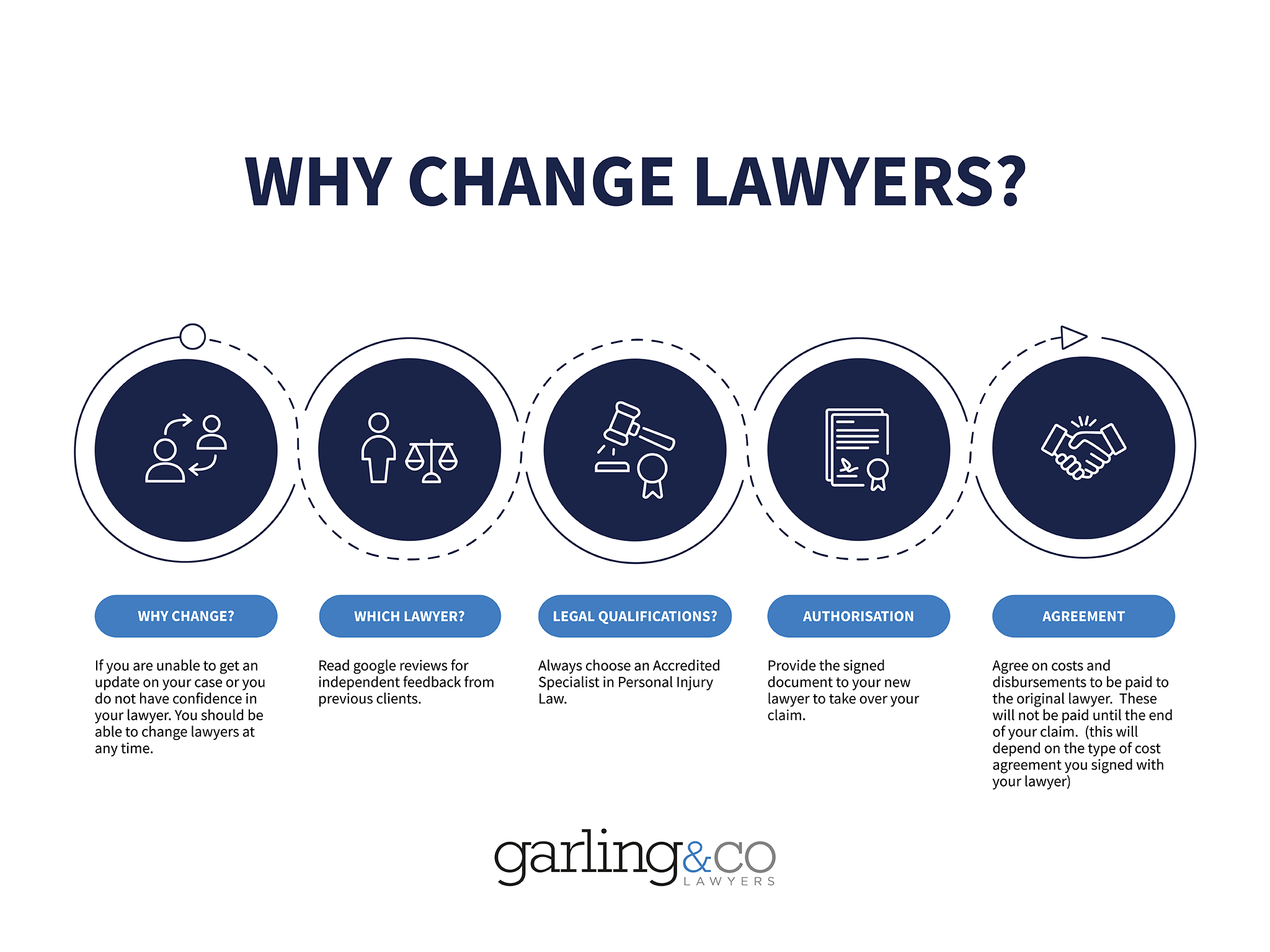
Changing Lawyers is a relatively simple process. If you've lost confidence in your personal injury lawyer, make sure to obtain a second opinion from a different Lawyer.
Changing Lawyers
In most personal injury matters, you need to sign a No Win No Fee costs agreement or what is known as a Conditional Costs Agreement. This means that you do not pay any legal costs until the conclusion of your claim. If you have signed a No Win No Fee costs agreement, then there is usually no difficulty in changing to another Lawyer.
In order to change lawyers you will need to:
- Find another Lawyer to take over the conduct of your claim;
- Sign a document authorising your new Lawyer to take over the conduct of the claim from your old lawyers.
Once your previous Lawyer receives that authority, you are no longer their client and they are not entitled to contact you, other than to send a bill of costs for work completed to date.
What happens next?
The original Lawyer should then forward the file to your new Lawyer on the undertaking that the original lawyers’ reasonable costs and disbursements will be paid at the end of the claim.
Often a Tripartite Deed, also known as a Tripartite agreement, is entered between the original Lawyers, new Lawyers, and the client to ensure that reasonable costs and disbursements will be paid to the old Lawyers at the conclusion of the claim when changing firms.
Sometimes difficulties can arise where the original Lawyers refuse to release their file and require payment of disbursements, such as the cost of medical reports. In No Win No Fee costs agreements, you do not need to repay the disbursements until the conclusion of the claim, in most circumstances.
We recommend an Accredited Specialist when choosing a Lawyer
An Accredited Specialist in Personal Injury Law is the most Senior Lawyer in personal injury law. This is an industry recognition, by The Law Society of NSW, that your lawyer has undertaken specialist training and has deep experience in personal injury law to qualify them as an Accredited Specialist in Personal Injury Law.
Changing Lawyers is a relatively simple process. You do not need to repay any legal costs until the end of your claim. If you have lost confidence in your lawyer, then you should seek further obtain further legal advice, a second opinion from a new lawyer. You are in no way obliged to move firms after this first consultation, but it can help you decide if you do need to switch lawyers.
We always recommend that any Lawyer you chose to act on your behalf in a claim for personal injury should be an NSW Accredited Specialist in Personal Injury Law.
Please see our article here on why you need an Accredited Specialist.
Changing lawyers 5 point summary –
- Why Change? – If you are unable to get an update on your case or you do not have confidence in your lawyer. You should be able to change lawyers at any time.
- Which Lawyer? Read google reviews for independent feedback from previous clients.
- Legal Qualifications? Always choose an Accredited Specialist in Personal Injury Law.
- Authorisation – Provide the signed document to your new lawyer to take over your claim.
- Agreement – agree on costs and disbursements to be paid to the original lawyer. These will not be paid until the end of your claim. (this will depend on the type of cost agreement you signed with your lawyer)
Terms and Definitions
- Tripartite deed – this is an agreement between your old lawyer and the new lawyer on costs and disbursements.
- Legal costs and disbursements – are usually paid at the end of the claim when you are successful.
Contact Garling and Co today for your confidential free case appraisal. Your journey to recovery starts now.












